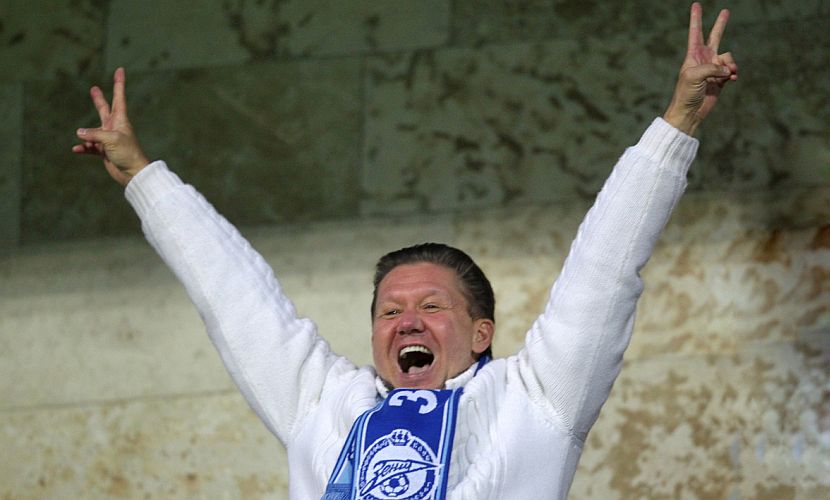
Alexey Miller, chief executive of Russia’s largest gas producer Gazprom, topped Forbes Russia’s top-paid managers list for the first time ever, hauling in an estimated $27 million in 2014.
Miller, who has been at the top post at Gazprom since 2001, was one of the few top-paid Russian executives to see his salary increase in dollar terms this past year, given the ruble’s massive devaluation.
Forbes published its annual ranking of Russia’s best-compensated CEOs on Thursday. The estimates are calculated using the companies’ compensation disclosures, in addition to analysis by Forbes journalists.
In second place was Andrey Kostin, CEO of Russia’s second-largest lender VTB, who saw his salary drop to $21 million from $37 million in 2013. In third place is another energy tsar, Igor Sechin, head of Rosneft, who made $17.5 million in 2014. This is the first time Sechin’s salary was published by Forbes Russia’s since the magazine was sued after reporting his salary was $50 million in 2013. After that, the Russian government ordered top executives from state-owned companies to make their salaries public.
Miller and Sechin’s pay are on par with companies that are far outperforming either Russian energy giant. ExxonMobil boss Rex Tillerson’s salary was estimated at $33 million in 2014 and Bob Dudley was compensated $12.74 million by BP.
Both Miller and Sechin are considered longtime confidants of Russian President Vladimir Putin, and have both worked with him since the 1990s, dating back to the president’s time in the St. Petersburg mayor’s office.
The more than $10 million gap between Miller and Sechin’s salaries would make sense if Gazprom were performing much better than Rosneft this year, which is not the case. Net income fell steeply and net debt increase by almost 50 percent.
Like Rosneft, Gazprom is suffering from low oil prices, but due to decreased demand from Europe, Gazprom is massively under producing. It is estimated in 2015 Gazprom will only produce 450 billion cubic meters of its 617 billion cubic meter capacity.
Back in 2008, when the company was valued at $360 million, Gazprom head Alexey Miller forecasted that within a decade the oil conglomerate would become the world’s largest company with a market capitalization of $1 trillion.
Now its market capitalization hovers around $51.5 billion. In the last year, stocks have lost more than 35 percent of their trading value.
However, it’s not all doom and gloom for Gazprom, as projects such as Nord Stream II, a pipeline from Russia to Germany, and two potential pipelines to China could strengthen the company’s position.
Louise Dickson
